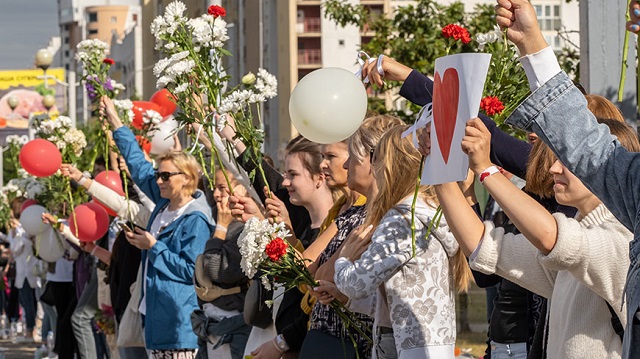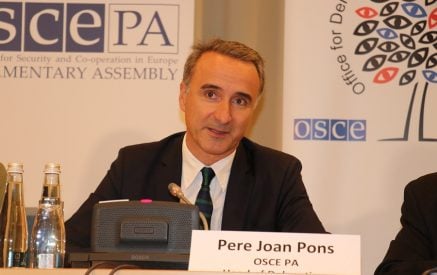More than a month after the beginning of mass protests following the presidential elections in Belarus, the human rights situation in the country remains extremely worrying. Thousands of peaceful protesters have been arrested, and several individuals have been reported missing. Yet, non-violent demonstrations have continued across the country.
Belarusian women have emerged as key voices of dissent in Belarus and an inspiration for many around the world. Often holding flowers, women have become a symbol of the peaceful nature of protests, marching together every week despite the violence used by law enforcement officials trying to stop their demonstrations through dispersal and arrests. Last Saturday in Minsk, Belarus law enforcement officials summarily arrested and detained hundreds of women protesters, taking their fingerprints and photos before releasing them.
Belarus is not a member state of the Council of Europe, but like any other country it should not overlook the fact that it is bound by international human rights law and obligations, and it bears full responsibility for human rights violations, especially when committed systematically and on a large scale. The prohibition of torture and ill-treatment is absolute and peremptory in nature and imposes a number of specific obligations on all states, including Belarus.
Council of Europe























































